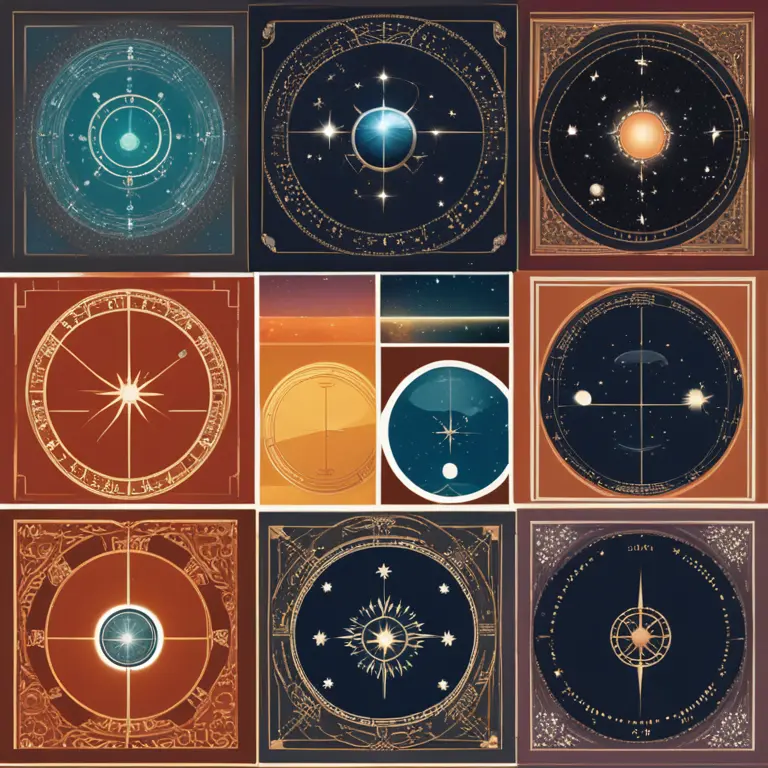
The Intricacies of Type Compatibility in Relationships
Delve into the concept of type compatibility and its significance in fostering harmonious relationships.
article by Sofia Ferguson
Defining Type Compatibility
In the realm of interpersonal relationships, type compatibility refers to the harmonious blend of individual traits that contribute to a balanced and fulfilling connection. It's the idea that certain personalities naturally complement each other, creating an environment ripe for growth, understanding, and mutual respect. While compatibility can be assessed through various frameworks, including astrology, biorhythms, and personality typologies, the essence lies in the dynamic interplay between different character elements. In the context of partnerships, be they romantic, professional, or platonic, recognizing and appreciating these compatibilities can be a cornerstone for long-lasting bonds.

Compatibility in Astrology
Astrology offers a cosmic perspective on type compatibility, assigning characteristics and potential compatibilities based on celestial influences. The position of the stars and planets at the time of one's birth is believed to shape personality traits, which can be analyzed to forecast relational dynamics. Zodiac signs, for instance, are grouped into elements—fire, earth, air, and water—where certain elements are traditionally more compatible. A fire sign's passion may either be fueled or tempered by the steadfast nature of an earth sign, for instance, creating a synergy that can either support or challenge a relationship.

Biorhythms and Relational Sync
Biorhythms, another fascinating facet of type compatibility, involve the study of cyclical patterns within human physiology and emotion. It is surmised that aligning one's biological cycles—physical, emotional, and intellectual—with those of a partner can result in a more synchronized and smooth relationship. By charting these cycles, individuals can anticipate periods of heightened understanding or potential conflict, thereby equipping themselves to nurture their relationships more mindfully.

Personality Typologies and Matchmaking
Beyond the stars and biological rhythms, personality typologies such as the Myers-Briggs Type Indicator (MBTI) offer another layer to compatibility. These typologies categorize individuals based on cognitive functions and behavioral tendencies, suggesting complementary pairings of personality types. For example, an extroverted individual may find common ground with an introvert, as each may balance the other's tendencies, offering a rich terrain for reciprocal growth and support if navigated thoughtfully.
The Role of Compatibility Systems
While these systems and theories provide a structured approach to understanding type compatibility, they serve more as guidelines rather than hard-and-fast rules. Individuals are complex, and the nuances of any relationship extend beyond the scope of any single compatibility framework. However, these systems can encourage introspection and dialogue, providing a starting point for individuals to explore and articulate their preferences, quirks, and needs.
Compatibility's Place in a Modern Context
In the modern era of dating apps and social connectivity, type compatibility has evolved from mystical divinations to encompass more scientifically oriented approaches. Big data and algorithm-driven platforms utilize compatibility theories to enhance match accuracy, reflecting society's ongoing quest to quantify the abstract nature of human bonds. The fusion of traditional practices with contemporary technology underscores the timeless importance of compatibility in forging meaningful connections.
Published: 1/16/2024
Modified: 1/16/2024
More predictions
Come back here soon to learn more about yourself and your future


The Aspects of Numerology's Number 4
Delve into the stable and methodical world of Numerology's Number 4, and discover the characteristics and influence it holds in life's journey.


The Essence of Numerology's Number 4
Delve into the steadfast and structured world of Numerology's Number 4, revealing the traits and influence it has in our lives.


The Roots of Numerology: An Ancient Practice
Tracing the roots of numerology, this article delves into the ancient beginnings and figures attributed with the creation of this mystical system.